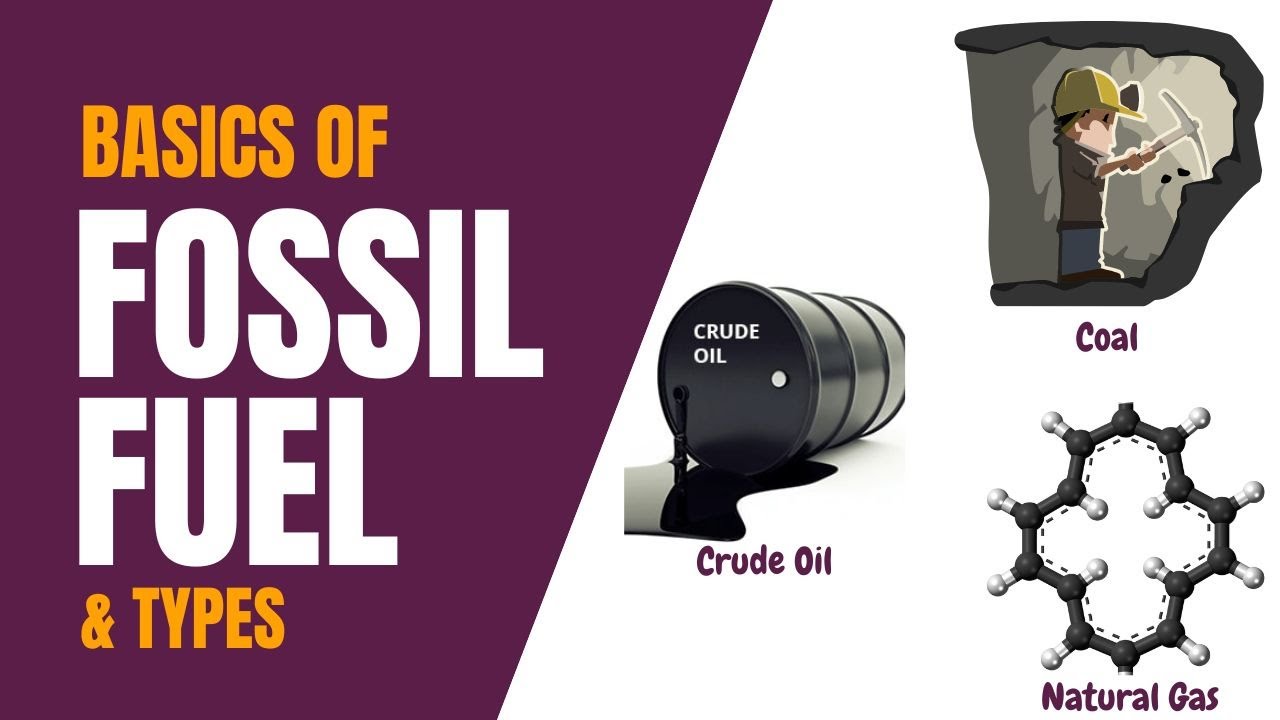Minyak Bumi dan Gas disertai Animasi Terbentuknya dan Proses Destilasi Minyak Bumi - Kimia XI
Summary
TLDRThis video discusses the chemistry topic of fossil fuels, focusing on crude oil, natural gas, and coal. It explains the composition of each type, with crude oil containing hydrocarbons like alkanes, cycloalkanes, and aromatics. The video also covers the formation of fossil fuels over millions of years from organic matter, and details the refining process of crude oil, such as fractional distillation and cracking. It explains how different fuel types, like gasoline, diesel, and LPG, are derived and introduces the concept of octane ratings for fuel quality. Finally, it touches on the environmental impacts and the need for alternative energy sources.
Takeaways
- 🛢️ Fossil fuels consist of three main components: crude oil, natural gas, and coal.
- ⛽ Crude oil primarily consists of hydrocarbons like alkanes, cycloalkanes, and aromatic compounds like benzene.
- 🌬️ Natural gas mainly contains lower alkanes such as methane, ethane, propane, and butane, with small amounts of CO2, H2S, and helium.
- ⚒️ Coal is a solid fossil fuel primarily composed of high-molecular-weight hydrocarbons and can contain sulfur.
- 🌍 Fossil fuels are non-renewable energy sources formed from ancient organic matter over millions of years.
- 💡 Fossil fuel formation involves pressure, heat, and time, transforming organic material into kerogen, then into oil and gas.
- 🔩 Crude oil is processed through primary and secondary methods, including fractional distillation and cracking, to produce useful fuels.
- 🚗 Fractional distillation separates crude oil into different fractions based on their boiling points, such as gasoline, diesel, kerosene, and lubricants.
- ⚗️ Cracking breaks large hydrocarbon molecules into smaller, more useful ones, while reforming improves fuel quality.
- ⛽ Different gasoline grades are rated by octane numbers, with higher octane indicating better resistance to engine knocking and better fuel quality.
Q & A
What are the three main components of fossil fuels mentioned in the script?
-The three main components of fossil fuels are petroleum (crude oil), natural gas, and coal.
What are the primary compounds found in petroleum?
-Petroleum primarily consists of alkanes (e.g., n-heptane, n-octane, and isooctane), cycloalkanes (e.g., cyclopentane and cyclohexane), benzene and its derivatives, small amounts of alkenes, and traces of sulfur, nitrogen, and oxygen.
What is the composition of natural gas according to the script?
-Natural gas primarily consists of lower alkanes like methane, ethane, propane, and butane, with small amounts of CO2, H2S, and helium.
How is coal different from petroleum and natural gas in terms of composition?
-Coal is a solid fuel primarily made up of high-molecular-weight hydrocarbons and can contain sulfur atoms, while petroleum and natural gas are primarily composed of lower molecular-weight hydrocarbons.
What is the process of forming fossil fuels according to the script?
-Fossil fuels form over millions of years from the remains of dead plants and animals. These remains are buried under sediments and, under high temperature and pressure, are converted into kerogen, which eventually transforms into petroleum and natural gas.
What is the primary method of extracting petroleum from underground reserves?
-Petroleum is extracted by drilling wells that reach depths of 3-4 kilometers below the earth’s surface, tapping into reservoirs where oil and gas are trapped in porous rock layers.
What is the primary process used to refine crude oil?
-The primary process used to refine crude oil is fractional distillation, where crude oil is heated and separated into different fractions based on their boiling points.
What happens during the cracking process in oil refining?
-During cracking, large hydrocarbon molecules are broken down into smaller, more useful molecules, such as gasoline and diesel.
What is the purpose of the reforming process in oil refining?
-Reforming improves the quality of fuel by altering the structure of hydrocarbon molecules, turning low-quality fractions into higher-quality ones.
How is the octane rating of gasoline determined?
-The octane rating is based on the percentage of isooctane and n-heptane in the gasoline. A higher octane number indicates a better quality of fuel that is less prone to knocking in engines.
Outlines

此内容仅限付费用户访问。 请升级后访问。
立即升级Mindmap

此内容仅限付费用户访问。 请升级后访问。
立即升级Keywords

此内容仅限付费用户访问。 请升级后访问。
立即升级Highlights

此内容仅限付费用户访问。 请升级后访问。
立即升级Transcripts

此内容仅限付费用户访问。 请升级后访问。
立即升级5.0 / 5 (0 votes)






